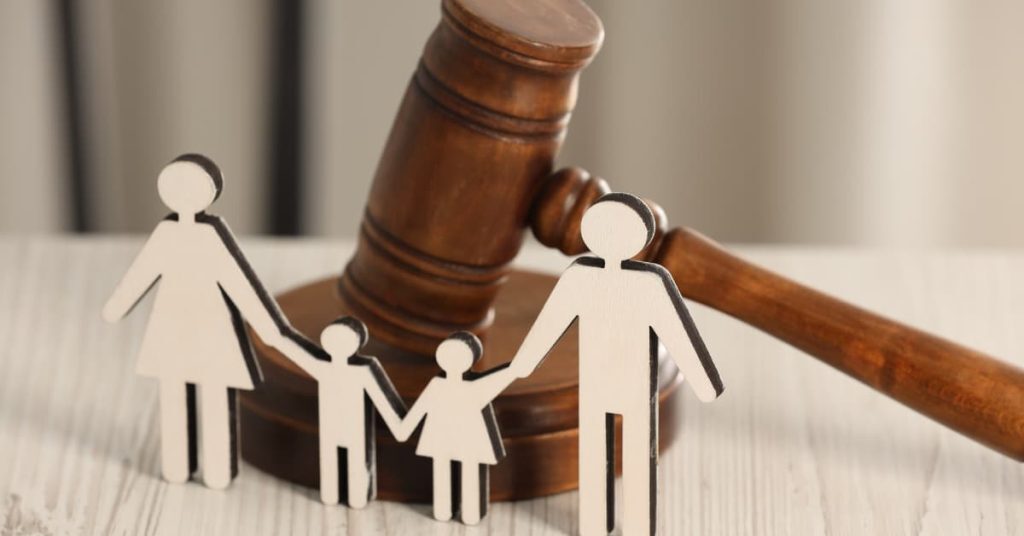Choosing a Guardian in Ontario: Your Complete Guide to Protecting Your Children’s Future
Last week, I sat across from a single mother of two young children as she broke down in my office. Her sister had just been diagnosed with a terminal illness – the very person she had mentally earmarked to care for her children if something happened to her. “I never actually put it in writing,” she said through tears. “I just assumed she would be there.”
As someone who’s spent over a decade helping families through their most vulnerable moments, I’ve seen this scenario play out too many times. This client’s situation isn’t unique – it’s actually the norm. Most parents I meet have given guardian selection some thought, but they’ve never taken that crucial next step of making it legally binding.
What happens when parents don’t choose guardians properly? The courts step in. Your children become part of a legal process instead of seamlessly transitioning to the loving family member you had in mind. I’ve worked with over 1,200 families at Nussbaum Law, and I can tell you that choosing a guardian in Ontario is one of the most important – yet overlooked – decisions parents make.
But here’s what troubles me about this whole process: why do we make it so complicated? Maybe it’s because we don’t want to think about the unthinkable. Or maybe it’s because the legal requirements seem overwhelming. Here’s what I’ve learned after years of helping families navigate this crucial decision – the right guardian choice, properly documented, gives you peace of mind and protects your children’s future in ways you might not expect.
What Most Parents Get Wrong About Choosing a Guardian in Ontario
When I first started practicing family law in Ontario, I noticed a troubling pattern. Parents would come to me after a tragedy had already struck, desperately trying to sort out guardianship issues for children who were now caught in legal limbo. The common thread? These families had made the same critical mistakes that could have been easily avoided.
You might be thinking, “But surely my sister would just take my children if something happened to me.” That’s the biggest misconception I encounter – parents assume that if something happens to them, a family member will automatically step in to care for their children. This simply isn’t how Ontario law works. Under the Children’s Law Reform Act, if both parents die without appointing a guardian in their will, the court has no knowledge of your wishes for your children.
What’s the result of this oversight? Multiple family members might apply to become guardians, leading to conflict and uncertainty at an already difficult time for your children. I’ve witnessed families torn apart by guardianship disputes that could have been prevented with a single conversation and proper documentation.
Another mistake I see regularly – and this one frustrates me because it’s so unnecessary – involves parents who discuss guardianship verbally with relatives but never formalize the arrangement. The appointment in your will is only valid up to 90 days after your death, and the appointed guardian must apply to the court within that timeframe to obtain permanent legal guardianship. Without proper documentation, even the most well-intentioned family member lacks the legal authority to make decisions for your children.
Here’s what surprised me early in my career: some parents choose guardians based on who they think “should” take the children rather than who would actually be the best fit. I’ve seen families select grandparents out of obligation, even when those grandparents are in their seventies and struggling with their own health issues. Now, I understand family loyalty, but the reality is that guardian selection should be based on practical considerations, not family hierarchy.
Understanding Guardian Selection Under Ontario Law
Let me walk you through how guardianship actually works in Ontario, because understanding the legal framework will help you make better decisions for your family.
Under the Children’s Law Reform Act, parents have the legal authority to appoint one or more individuals as guardians for their minor children. This appointment can be made in your will or through a specific legal form. The keyword here is “minor” – we’re talking about children under 18 years of age.
Here’s how the process unfolds if both parents pass away. If you have a legally binding will that names a guardian, that person has up to 90 days to apply to the Ontario Superior Court of Justice for permanent legal guardianship. During this period, they can care for your children, but they need that court order to have full legal authority.
The court’s primary consideration? Your children’s best interests. But here’s where your guardian choice in your will carries significant weight. The court may heavily rely on the wishes you express in your will to gain an understanding of what you believe would be in their best interests. This is why the selection process is so crucial – you’re not just choosing a caregiver, you’re providing the court with your expert knowledge of what’s best for your specific children.
What if only one parent dies? If one parent dies, the surviving parent becomes the child’s sole legal guardian. Your guardian appointment only takes effect if both parents pass away or if the surviving parent is unable to care for the children.
I want to address something that causes confusion for many parents. You can name more than one person to have guardianship of your children, such as a couple. This often makes sense when you’re selecting married relatives. However, there are risks to consider – what happens if that couple divorces? What if one spouse predeceases the other? I usually recommend that parents think carefully about naming both spouses versus naming just one primary guardian.
The Strategic Approach to Choosing Your Children’s Guardian
After helping hundreds of families through this process, I’ve developed what I call the “Guardian Assessment Framework.” This systematic approach helps parents move beyond emotional assumptions to make practical, strategic decisions about their children’s future.
Start with your children’s current relationships. Does your child have a relationship of trust with this individual? I’ve seen situations where parents selected a geographically distant relative who barely knew the children. Consider who your children already feel comfortable with, who understands their personalities, and who they would actually want to live with if they could choose.
Evaluate practical capacity. Does this person have the capacity to care for your children if anything were to happen to you in the near future? This goes beyond just loving your children. Consider their current life stage, financial situation, living arrangements, and health status. A guardian needs the physical, emotional, and financial resources to take on this responsibility.
Consider values alignment. Will your chosen guardian raise your children with values similar to yours? This includes religious beliefs, educational priorities, discipline approaches, and lifestyle choices. You want someone who will honor the parenting approach you’ve established while bringing their own strengths to the role.
Geographic and stability factors. Where does your potential guardian live? Would your children need to change schools, leave their community, or move far from extended family? Sometimes geographic distance is unavoidable, but it’s a factor that should influence your decision.
Age and life stage considerations. I’ve worked with families who chose grandparents in their seventies, and others who selected siblings in their twenties. Both approaches can work, but each comes with different advantages and challenges. Older guardians often have wisdom and stability but may lack energy. Younger guardians might have energy and longevity, but less life experience.
Here’s a strategy I recommend to many clients: create your “Guardian Assessment Grid.” List your potential guardians down the left side, and key factors across the top (relationship with children, financial capacity, values alignment, geographic location, age considerations). Rate each guardian on each factor. This visual approach often reveals clear winners and helps you articulate why you made your choice.
The backup guardian strategy. There’s also a chance that the guardian you’ve selected is unable or unwilling to take on the role, which is why it’s wise to name an alternate guardian. I typically recommend naming at least two alternate guardians. Life circumstances change – people move, face health challenges, or experience financial difficulties. Having alternatives ensures your children won’t end up in legal limbo.
Financial considerations. Guardianship involves significant financial responsibility. I often work with families to ensure their life insurance and estate planning align with their guardian choice. If you’re selecting a guardian who earns less than you do, consider how they’ll afford to maintain your children’s lifestyle, education, and activities. This might influence your life insurance decisions or trust arrangements.
Common Guardian Selection Scenarios and Solutions
In my years of practice, I’ve encountered virtually every family situation you can imagine. Let me share some common scenarios and the solutions I typically recommend.
Scenario 1: The Geographic Dilemma
Your ideal guardian lives in another province or country. This creates challenges around schooling, maintaining family relationships, and legal jurisdiction. My approach? Consider the long-term benefits versus short-term disruption. Sometimes the right guardian is worth the geographic move, particularly if they can provide stability and love for the long haul.
Scenario 2: The Financial Mismatch
Your chosen guardian has limited financial resources compared to your current family situation. This doesn’t necessarily disqualify them. I work with families to structure life insurance policies and trust arrangements that provide financial support to the guardian without creating dependency or resentment.
Scenario 3: The Single vs. Couple Decision
Should you choose a single person or a married couple? Both have advantages. Single guardians offer consistency and don’t carry the risk of divorce disrupting your children’s lives again. Couples can share the parenting load and might provide a more traditional family structure. I usually recommend evaluating the specific individuals rather than the relationship status.
Scenario 4: The Multiple Children Challenge
What if keeping siblings together would burden your chosen guardian, but splitting them up feels wrong? This requires honest conversations with potential guardians about their capacity. Sometimes the same guardian can handle multiple children with proper support systems. Other times, different guardians for different children might actually serve everyone’s best interests.
Scenario 5: The Religious or Cultural Considerations
Maintaining your children’s religious or cultural identity might be crucial to you. This factor can override other considerations if it’s fundamental to your family values. I’ve worked with families who chose guardians specifically because they would continue important cultural traditions and religious practices.
The Legal Documentation Process
Choosing your guardian is only half the battle – you need to document your decision properly to make it legally effective. Here’s how the documentation process works in Ontario.
Option 1: Guardian Appointment in Your Will
Most parents include guardian appointments in their wills. This is straightforward and cost-effective. A parent with custody of a minor child may appoint someone in their will to be the child’s guardian after their death. The appointment should be clear, specific, and include alternate guardians.
Option 2: Standalone Guardian Appointment Form
A designation may be provided in a will, or it may be made by way of Form 2 of the Family Law Act Regulations. This form allows you to make guardian appointments outside of your will, which can be useful if you need to update guardian choices without redrafting your entire will.
The Consent Requirement
Before you appoint an individual to become the legal guardian of your children, you will need to speak with them to ensure they are willing to accept this responsibility. This isn’t just a courtesy – it’s a practical necessity. It’s a massive responsibility to take care of someone else’s child, so you want to make sure the person you’ve selected to be the guardian of your minor child is prepared to fill this role.
During these conversations, discuss practical details like financial support, your children’s routines and preferences, your parenting philosophy, and any special needs or considerations. These discussions often reveal whether someone is truly prepared for the responsibility or just being polite.
Regular Review and Updates
Guardian appointments aren’t “set it and forget it” decisions. I recommend reviewing your guardian choices every few years or after major life events – marriages, divorces, births, deaths, moves, or changes in financial circumstances. What made sense when your children were toddlers might not work when they’re teenagers.
Special Circumstances and Advanced Considerations
Some families face unique circumstances that complicate guardian selection. Here’s how I approach these more complex situations.
Children with Special Needs
If your child has medical, developmental, or educational special needs, your guardian selection criteria expand significantly. You need someone who understands your child’s specific requirements, can advocate effectively with schools and healthcare providers, and has the emotional and financial resources for specialized care. I often recommend that these families consider naming a professional guardian or creating detailed care instructions alongside their guardian appointment.
Blended Families
When families include step-children, biological children from different relationships, or adopted children, guardianship becomes more complex. Different children might have different legal parents, which affects who can make guardian appointments. I work closely with blended families to ensure all children are covered appropriately and legally.
High-Conflict Situations
Sometimes parents disagree about guardian selection, or there are family members who might challenge your choices. In high-conflict situations, detailed documentation becomes even more important. I might recommend including explanatory letters with your will that articulate your reasoning, especially if you’re bypassing seemingly obvious choices like grandparents in favor of other relatives.
International Considerations
If you or your potential guardians have connections to other countries, additional legal complexities arise. Different countries have different laws about child custody and guardianship. If your chosen guardian lives internationally, or if you’re concerned about international custody disputes, specialized legal advice becomes essential.
Financial Planning for Your Guardian Decision
Guardian selection and financial planning go hand in hand. Your children’s guardian will need resources to care for them properly, and your estate planning should reflect this reality.
Life Insurance Alignment
Many parents need to adjust their life insurance coverage once they’ve selected a guardian. Consider whether your current coverage provides enough support for your chosen guardian to maintain your children’s lifestyle, education, and activities. If your guardian earns significantly less than you do, they might need substantial financial support to take on this responsibility.
Trust Arrangements
Rather than leaving money directly to minor children, many families create trusts that provide ongoing support to guardians for children’s expenses. This can include provisions for education, healthcare, housing, and general living expenses. Trust arrangements can also include incentives or guidelines for how funds should be used.
Guardian Compensation
Some families choose to provide direct compensation to guardians, recognizing that caring for additional children creates a financial burden. This might be a monthly stipend, reimbursement for expenses, or other financial arrangements. Being explicit about financial support often makes potential guardians more comfortable accepting the responsibility.
Having the Difficult Conversations
One of the hardest parts of the guardian selection process is actually discussing your choice with potential guardians. These conversations can feel awkward, but they’re absolutely necessary for making informed decisions.
Initiating the Conversation
I recommend starting these discussions by explaining your estate planning process rather than jumping directly into guardian requests. You might say something like, “We’re updating our wills and thinking through what would happen to the kids if something happened to both of us. Would you be comfortable having that conversation with us?”
Key Discussion Points
Cover practical details like your children’s routines, school preferences, medical needs, and extracurricular activities. Discuss your parenting philosophy, discipline approaches, and values. Be honest about the financial support you can provide and what expenses the guardian would be responsible for covering.
Addressing Concerns
Potential guardians often have legitimate concerns about taking on this responsibility. Listen carefully to their questions and concerns. Sometimes initial reluctance reflects practical worries that can be addressed through better planning or support systems.
Alternative Arrangements
Don’t be discouraged if your first choice isn’t available or willing. Sometimes these conversations reveal better alternatives or suggest modifications to your plans that work better for everyone involved.
Moving Forward with Confidence
Choosing a guardian in Ontario doesn’t have to be overwhelming when you approach it systematically. The key is moving beyond emotional assumptions to make practical, strategic decisions based on your children’s actual needs and circumstances.
Start with the Guardian Assessment Framework I’ve outlined. Evaluate potential guardians based on their relationship with your children, practical capacity, values alignment, and life circumstances. Have honest conversations with your top choices to ensure they understand and accept the responsibility. Document your decisions properly in your will or through appropriate legal forms.
Review and update your choices regularly as circumstances change. Remember that guardian selection is just one part of protecting your children’s future – coordinate your guardian choice with your life insurance planning, consider trust arrangements if appropriate, and ensure your overall estate plan supports your guardian’s ability to care for your children properly.
Here’s what I want you to remember above all else: don’t let the complexity of these decisions prevent you from taking action. Take the first step today. Choose someone. Document your choice. Review it annually. An imperfect guardian choice properly documented is infinitely better than no choice at all.
Your children deserve the security that comes from knowing you’ve planned for their future, even in the worst-case scenario. The families I work with consistently tell me that making these decisions – difficult as they are – provides enormous peace of mind. They sleep better knowing their children will be cared for by someone they trust, someone who understands their values, and someone who has the resources and support needed for the job.
If you’re ready to move forward with appointing a guardian for your children – and I hope you are – or if you have questions about your specific family situation, contact our team at Nussbaum Law. We’ll help you navigate the legal requirements, work through complex family dynamics, and ensure your children’s future is protected according to your wishes. Your peace of mind and your children’s security are worth the investment in proper planning.










